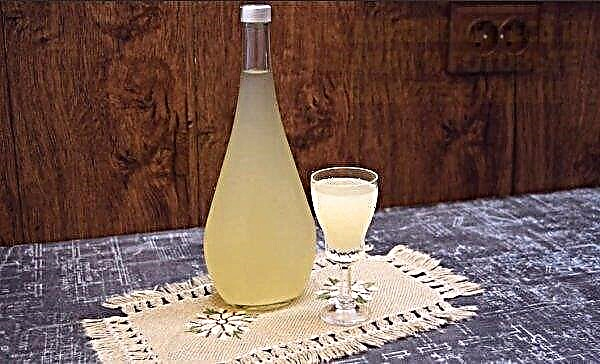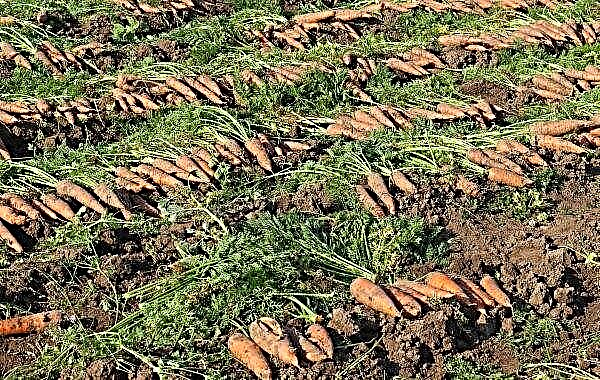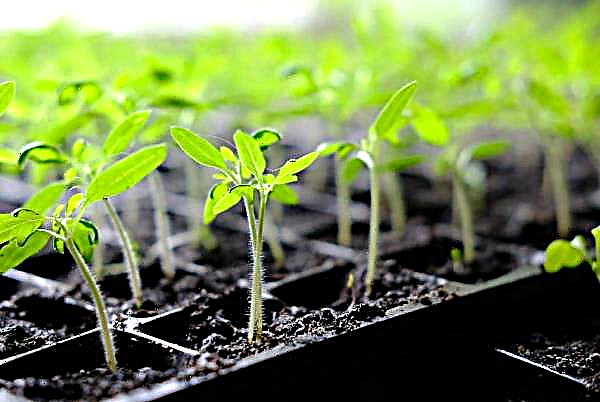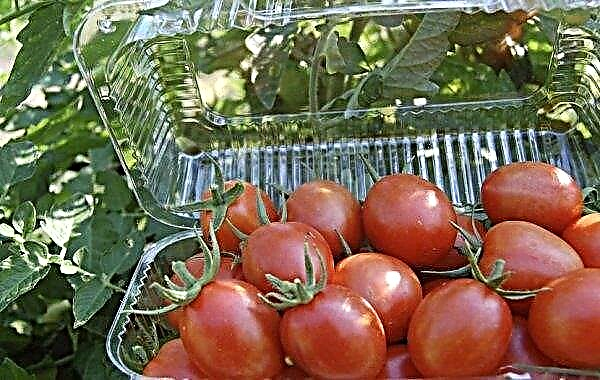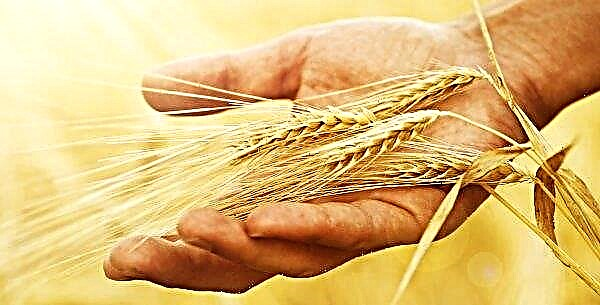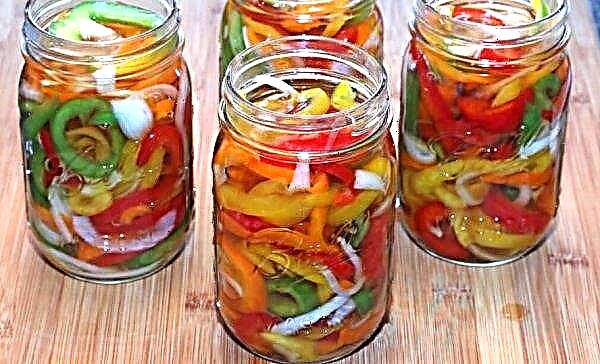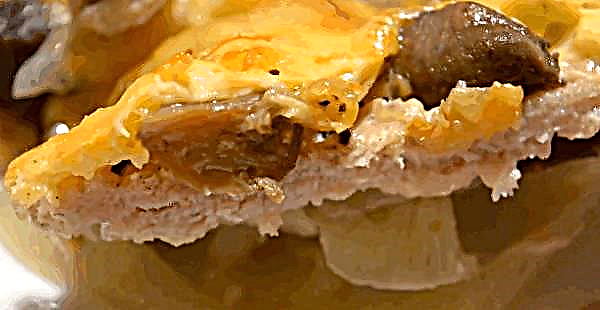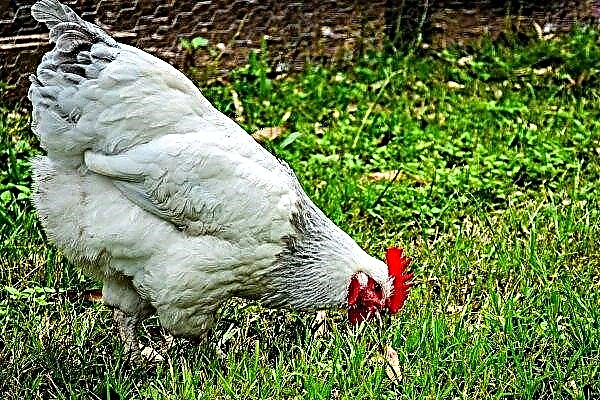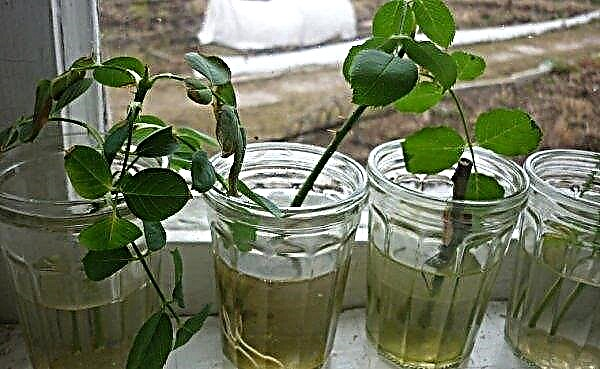Ginger has long established itself as a remedy for many diseases. However, it is often possible to run into disputes about whether the root blood pressure increases or decreases and whether it can be used for hypertension. You will find answers to these questions in our article.
Chemical characteristics and mechanism of influence on blood pressure
In many ways, the property of ginger to affect pressure depends on its chemical composition, presented in the table:
| Nutrients | Minerals | Vitamins |
| Protein (9 g) | Magnesium (184 mg) | C (12 mg) |
| Fats (6 g) | Phosphorus (148 mg) | B1 (0.04 mg) |
| Carbohydrates (70 g) | Potassium (1.4 mg) | B2 (0.1 mg) |
| Fiber (6 g) | Sodium (32 mg) | B3 (5 mg) |
| - | Iron (11.5 mg) | A (0.01 mg) |
All substances have one or another effect on the body. For example, vitamins have this effect:
For example, vitamins have this effect:
- A - takes part in the metabolism, supports the health of vision;
- B1 - accelerates metabolism, strengthens the immune system, has relaxing properties;
- B2 - helps in the absorption of other vitamins, useful for the liver and nervous system;
- B3 - fights stress, dilates blood vessels, prevents cholesterol from spreading;
- C - protects against infections and diseases, removes toxins;
- E - normalizes hormonal levels, is responsible for the elasticity of blood vessels;
- K - is involved in blood coagulation.
And minerals exhibit the following effect:
- iron takes part in the production of hemoglobin, normalizes digestion;
- potassium normalizes pressure, participates in the work of the kidneys;
- calcium helps in the construction of bone tissue, in the maintenance of blood vessels;
- magnesium supports the health of the urinary tract and genitals, as well as the heart;
- sodium normalizes the water-salt balance;
- phosphorus supports dental health, enamel formation and bone building;
As you can see, ginger includes many useful substances that take part in the body. Many of them have an effect on blood pressure.
And these substances are divided into two types:
- Increasing pressure. This includes - iron, glucose, amino acids, zinc, calcium, nicotinic acid. They contribute to healthy blood circulation, improve the tone of blood vessels and artery walls.
- Lowering pressure. This includes potassium, phosphorus, magnesium, vitamin A, vitamin K, vitamin B. These substances tend to relax the heart and vascular muscles. They relieve spasms and enrich the blood with oxygen.
 Therefore, this healing root can both increase and lower blood pressure. That is why it is important to use it correctly.
Therefore, this healing root can both increase and lower blood pressure. That is why it is important to use it correctly.Did you know? In the Qur'an there is a mention of the described root, where it is called "spice from paradise."
The use of ginger for hypertension
Studies show that almost every adult has experienced this disease, expressed in high blood pressure. It can be caused by many factors: stress, unhealthy lifestyle, bad habits, etc.
Increasingly, you can find information about the miraculous properties of this root in the fight against hypertension. Whether it is truly effective will be discussed below.
1st degree
When consumed on a regular basis, the rhizome of this plant really has a positive effect with 1st degree hypertension. It lowers blood pressure, and its use stops the development of atherosclerosis, removes excess cholesterol.
The substances contained in this root dilute blood, dilate blood vessels and can relieve spasms. The ability of a mixture of garlic, honey and ginger to fight high pressure is well known due to its anti-inflammatory and antioxidant properties.
2nd and 3rd degree
Ginger can be consumed only in the early stages of hypertension, when there is still no regular medication. The reason is that ginger affects the drugs taken and can interfere with their action.
This can lead to undesirable consequences, such as a hypotonic crisis. Therefore, with 2nd and 3rd degree hypertensive ginger is contraindicated. It is best to use the plant as a prophylaxis for people who are at risk.Important! Ginger should not be consumed if blood pressure is higher than 160 per 100.
Hypertension Ginger Tea Recipe
 There are a lot of ways to use this fragrant root. One of the most enjoyable is ginger tea.
There are a lot of ways to use this fragrant root. One of the most enjoyable is ginger tea.
4 cups 10 min
Energy value per 100 g:
- At the bottom of the teapot, put sliced root slices and pour boiling water. So you need to brew it for 5-7 minutes.
- After this period add lemon, honey and spices at your discretion. In addition, you can throw mint, cloves, maple syrup and other additives to taste.

Did you know? The Phoenicians used the rhizomes of the plant in question as monetary currency.
Infusions

1 bottle 0.5 l20 min
Energy value per 100 g:
- The root must be washed and cleaned, cut into thin slices.
- Everything falls to the bottom of any convenient container, for example, cans. Then it is poured to the top with vodka.
- The infusion should stand for two weeks. Periodically, it must be shaken.
- After the liquid has settled, it must be filtered.
- For taste, add 2 tsp. honey.

Baths
Many positive reviews also about the ginger broth baths.
Important! Such baths are contraindicated for people suffering from varicose veins.
The foot bath is prepared as follows:
- It is necessary to peel and cut a small piece of ginger (up to 200 g).
- The chopped root is poured with 250 ml of water and boiled for 20 minutes.
- Ready broth must be diluted with hot water. The temperature of the bath should not be too hot.
- The feet and lower leg should be in the water for up to 15 minutes.

Ginger Use for Hypotension
With manifestations of hypotension, ginger is also often recommended to use to increase pressure. It contains substances necessary for hypotensives: vitamin C, potassium, calcium, protein, magnesium.
Features
Based on the processing method and method of preparation, ginger can increase or decrease blood pressure. Accordingly, this root is considered universal in terms of normalizing pressure.
The main thing is to cook it correctly. With hypotension, to increase the pressure, you can dissolve 0.5 parts of dry ginger powder in a mug of black warm tea. Such a drink is recommended to drink three times a day after meals for a week. To quickly increase blood pressure, you can eat a piece of this root in its raw form. However, this method is acceptable if the person has an absolutely healthy stomach.
To quickly increase blood pressure, you can eat a piece of this root in its raw form. However, this method is acceptable if the person has an absolutely healthy stomach.
We must not forget that treatment with this plant can be carried out only after agreement with the doctor.
Contraindications
There are many contraindications to the use of ginger. This is due to its irritating effect on the mucous membranes of the body.
- So, it is not recommended for use in such cases and with the following diseases:
- allergic to this plant;
- fever;
- gastrointestinal tract diseases;
- in late pregnancy;
- diabetes;
- heart diseases;
- gallstones
- cystitis;
- kidney disease
- strokes, heart attacks, bleeding.
 Also, this root is strictly prohibited for use if drugs are already being taken that increase or decrease blood pressure.
Also, this root is strictly prohibited for use if drugs are already being taken that increase or decrease blood pressure.Ginger is a good way to prevent and treat pressure problems in the early stages. The main thing is to cook it correctly and not to take it together with medicines. Be healthy!

